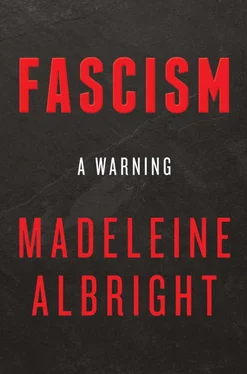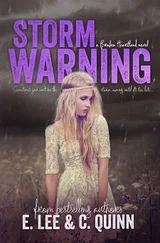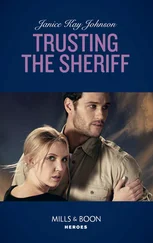Had Donald Trump not been elected president, I would still have embarked on this work, for it is a project I conceived with the thought of lending momentum to democracy during Hillary Clinton’s first term. Trump’s election just added to my sense of urgency. We cannot, of course, expect every leader to possess the wisdom of Lincoln or Mandela’s largeness of soul, but when we think about what questions might be most useful to ask, perhaps we should begin by discerning what our prospective leaders believe it worthwhile for us to hear.
Do they cater to our prejudices by suggesting that we treat people outside our ethnicity, race, creed, or party as unworthy of dignity and respect?
Do they want us to nurture our anger toward those who we believe have done us wrong, rub raw our grievances, and set our sights on revenge?
Do they encourage us to have contempt for our governing institutions and the electoral process?
Do they seek to destroy our faith in essential contributors to democracy such as an independent press and a professional judiciary?
Do they exploit the symbols of patriotism—the flag, the pledge—in a conscious effort to turn us against one another?
If defeated at the polls, will they accept the verdict or insist without evidence that they have won?
Do they go beyond asking for our votes to brag about their ability to solve all problems, put to rest all anxieties, and satisfy every desire?
Do they solicit our cheers by speaking casually and with pumped-up machismo about using violence to blow enemies away?
Do they echo the attitude of Mussolini: “The crowd doesn’t have to know,” all it has to do is believe and “submit to being shaped”?
Or do they invite us to join with them in building and maintaining a healthy center for our societies, a place where rights and duties are apportioned fairly, the social contract is honored, and all have room to dream and grow?
The answers to these questions will not tell us whether a prospective leader is left- or right-wing, conservative or liberal, or—in the American context—a Democrat or a Republican. However, they will tell us much that we need to know about those wanting to lead us and much, also, about ourselves. For those who cherish freedom, the answers will provide grounds for reassurance or a warning we dare not ignore.
IN JANUARY 2001, WHEN I COMPLETED MY SERVICE AS U.S. SECRETARY of state, I looked forward to telling my story in the pages of a book. My memoir, Madam Secretary , was published two and a half years later. Having already arrived at the conventional age of retirement, I figured that my career as an author was over. I was wrong. Fascism: A Warning is book number six. Either I don’t know when to stop, or events have dictated that I continue to speak my mind—I think the latter. This effort, more than others, is tied to recent and ongoing developments in the public arena and may therefore be overtaken, in some of its details, by what happens next. However, I suspect (and fear) that the larger themes will remain relevant because they are intimately connected to human nature and to how people of differing backgrounds find, or fail to find, peaceful ways to live together.
Every book is the product of a team and, now that we have had so much practice, our squad is a seasoned one. As always, I appreciate deeply the help and support of my family: my sister, Kathy Silva; my brother and sister-in-law, John and Pamela Korbel; my three daughters, Anne, Alice, and Katie; my sons-in-law; and my six grandchildren. There is little I could do, and nothing I love doing, without them.
The phenomenon we call Fascism played a central role in my life, as it has in that of so many others, and in the history of our times. Knowing this, however, is not the same as understanding Fascism’s origins and methods; for that, research is indispensable. I thank my longtime writing partner, Bill Woodward, for his exploration of the past, his many ideas, and his hard work. Elaine Shocas, another colleague of long standing, provided essential help in reviewing drafts and offering sage advice. Richard Cohen has edited every book I have written—even the one on pins—and, each time, improves everything from the core themes to the use of commas. He is a delight to work with, and forbidden to retire.
An author needs a publisher, and it is a lucky writer indeed who finds the best in the business. I am indebted to the all-star lineup at HarperCollins—beginning with Jonathan Burnham and Jonathan Jao, but also including Sofia Groopman, who has devoted many hours to this project—and to the entire Harper team, including Brian Murray, Michael Morrison, Tina Andreadis, Kate D’Esmond, and Juliette Shapland; I am thankful for their ongoing faith and guidance.
Bob Barnett and Deneen Howell, my counselors, set the standard of excellence in their profession. There are none smarter and none more pleasant. I value their help and treasure their friendship.
Like most books, this one went through numerous drafts. I thank all those who took the time to review various chapters, including my colleagues Wendy Sherman, Jim O’Brien, Jacob Freedman, and Fariba Yassaee, and especially Ken Wollack, the longtime president of the National Democratic Institute. Ken had many important insights, and I also appreciate the help of NDI’s Scott Hubli on the relationship between information technology and democracy.
An effort of this type demands a large investment of time, something that can distract from other obligations. Fortunately, I am privileged to work every day alongside an understanding and talented crew at the Albright Stonebridge Group. Jan Stewart and Liza Romanow have been at my side throughout this process and I could not have made it in the absence of their assistance, patience, and skill. There are too many others to cite everyone by name, but special thanks are also due to Melissa Estok, Mica Carmio, Lauren Cotter, and Nancy Sefko.
Anna Stolk devoted many hours to research and fact-checking. Her sound judgment and careful eye were valuable contributors to this project. Will Palmer did a superb job as copy editor and I commend him for it.
One of the joys of my life is that when I travel and spend time with old friends, it is often with a public purpose in mind. Back in 2003, I came up with an idea for staying in touch with some of the former foreign ministers with whom I had worked when serving as secretary of state. Our original name for the group, “Madeleine and her Exes,” has stuck, but the formal appellation is The Aspen Ministers Forum. We meet once or twice a year, continue to add more recent retirees, and often issue statements or write articles to summarize our thoughts. Lately, we have been discussing the situation in Europe, the political environment in the United States, and the implications of both for the rest of the world. Naturally, the subject of this book came up and several of the “ex-mins” allowed me to pick their brains. For their time and thoughts, I particularly want to thank my friends Lloyd Axworthy (Canada), Lamberto Dini (Italy), Erik Derycke (Belgium), Jan Eliasson (Sweden), Joschka Fischer (Germany), Jaime Gama (Portugal), Susana Malcorra (Argentina), David Miliband and Malcolm Rifkind (United Kingdom), Ana Palacio (Spain), George Andreas Papandreou (Greece), Hubert Védrine (France), and Knut Vollebæk (Norway). To be clear, though, the opinions expressed in this book are solely my responsibility, not theirs.
Finally, I am profoundly grateful to the students of my graduate class at Georgetown for their provocative thoughts on Fascism and for cheerfully agreeing to act as guinea pigs for this book. The lasagna was not payment enough. Sound the roll call: teaching assistants Friederike Kaiser, Shannon Mizzi, and Kirby Neuner; students Hadeil Abdelraouf, Bassima Alghussein, Katherine Ayanian, Daniel Bishop, Dainis Butners, Yanique Campbell, Samuel Denney, Shane Feifer, Anthony Johnson, Melissa Karakash, Ted Kenyon, Annie Kowalewski, Jennifer Lincoln, Amelie Lohmann, James Lowe, Gayle Martin, Alexandra Memmott, Sarah Oldham, Yusuke Saito, Sonny Santistevan, Samta Savla, Sally Scudder, Amanat Thind, Amanda Thoet, and Patrick Zimet. Thanks to each and every one.
Читать дальше
Конец ознакомительного отрывка
Купить книгу












